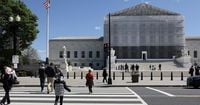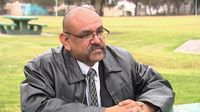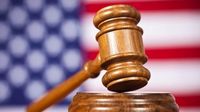In a troubling development for immigration rights advocates, recent incidents involving American citizens and the Department of Homeland Security (DHS) have raised alarm over the potential for wrongful detentions and the aggressive enforcement of immigration policies. These events have sparked fears of a bureaucratic system that may not only target undocumented individuals but also inadvertently affect U.S. citizens.
On April 11, 2025, Aldo Martinez, a U.S. citizen born in National City, California, received a shocking email from the DHS. The message instructed him to leave the country or face removal, stating, "You are currently here because the Department of Homeland Security paroled you into the United States for a limited period. DHS is now exercising its discretion to terminate your parole." The email concluded with a stark warning that failure to comply would result in law enforcement actions against him.
Martinez, who has dedicated years to helping the undocumented community as a representative accredited by the Department of Justice, expressed his confusion and fear over the email. "I was never paroled, I was never admitted into this country, I am no type of parole," he stated. His involvement with the organization Al Otro Lado, where he has conducted workshops to assist immigrants in navigating the asylum process, has made him a target in an increasingly hostile environment for immigration advocates.
In a similar case on the same day, Nicole Micheroni, another U.S. citizen residing in Massachusetts, received a similar email demanding her departure from the country. "At first, I thought it was for a client, but I looked really closely, and the only name on the email was mine," she recounted, highlighting the absurdity of the situation.
According to DHS, Martinez's email may have been sent in error, as clients sometimes use their representatives' addresses when they do not have email access. The agency stated, "Customs and Border Protection is issuing notices terminating parole for individuals who do not have lawful status to remain, and CBP used the known email addresses of the alien to send notifications." However, Martinez remains unconvinced and worries that these incidents may represent a broader trend of intimidation against immigration lawyers.
"I think it is an intimidation tactic against our community whether you’re a citizen or legal permanent resident or undocumented," he asserted. "But they’re not going to stop me from fighting for immigrants’ rights to keep defending clients." His work at La Maestra, a non-profit community center providing legal services, further emphasizes his commitment to the cause.
The political climate surrounding immigration has become increasingly fraught, particularly with the recent actions of former President Donald Trump. On April 17, 2025, the U.S. Supreme Court announced it would hear arguments regarding Trump's executive order aimed at restricting automatic birthright citizenship. This order, signed on January 20, 2025, directs federal agencies to deny citizenship to children born in the U.S. unless at least one parent is an American citizen or lawful permanent resident.
Critics of the order, including 22 Democratic state attorneys general and immigrant rights advocates, argue that it violates the 14th Amendment, which guarantees citizenship to anyone born in the United States. New Jersey Attorney General Matthew Platkin emphasized, "Birthright citizenship was enshrined in the Constitution in the wake of the Civil War, is backed by a long line of Supreme Court precedent and ensures that something as fundamental as American citizenship cannot be turned on or off at the whims of a single man."
The Supreme Court, which currently holds a 6-3 conservative majority, has yet to rule on the constitutionality of Trump's order. The administration contends that the 14th Amendment does not protect the citizenship rights of children born to undocumented immigrants or those with temporary legal status.
In a related incident, Juan Carlos Lopez-Gomez, a 20-year-old American citizen born in Georgia, was detained in Florida on April 16, 2025, at the request of ICE. Despite the Leon County judge's acknowledgment of his U.S. birth certificate, Lopez-Gomez was held under a state law that criminalizes the entry of undocumented immigrants. Judge LaShawn Riggans stated that she could not release him because ICE had requested his detention.
Lopez-Gomez's mother expressed her anguish over the situation, stating, "I wanted to tell them, ‘Where are you going to take him? He is from here.’" Protests erupted outside the Leon County jail, reflecting the community's outrage over the wrongful detention of a citizen.
Thomas Kennedy, a spokesperson for the Florida Immigrant Coalition, criticized the situation as a "bureaucratic, dystopian nightmare of poorly written laws." The American Civil Liberties Union Foundation of Florida also condemned the detention as based on a "patently false allegation that he entered the state while undocumented."
The incidents involving Martinez, Micheroni, and Lopez-Gomez highlight the potential for wrongful detentions and the chilling effect of aggressive immigration enforcement on U.S. citizens. As the Supreme Court prepares to hear arguments on Trump's birthright citizenship order, advocates for immigration reform continue to voice their concerns over the implications these policies have for American citizens and immigrants alike.
As the nation grapples with these issues, the need for clarity and reform in immigration policy has never been more pressing. Advocates urge lawmakers to ensure that the rights of all individuals, regardless of their immigration status, are protected and that the system does not unjustly target those who are entitled to live freely in the country.






